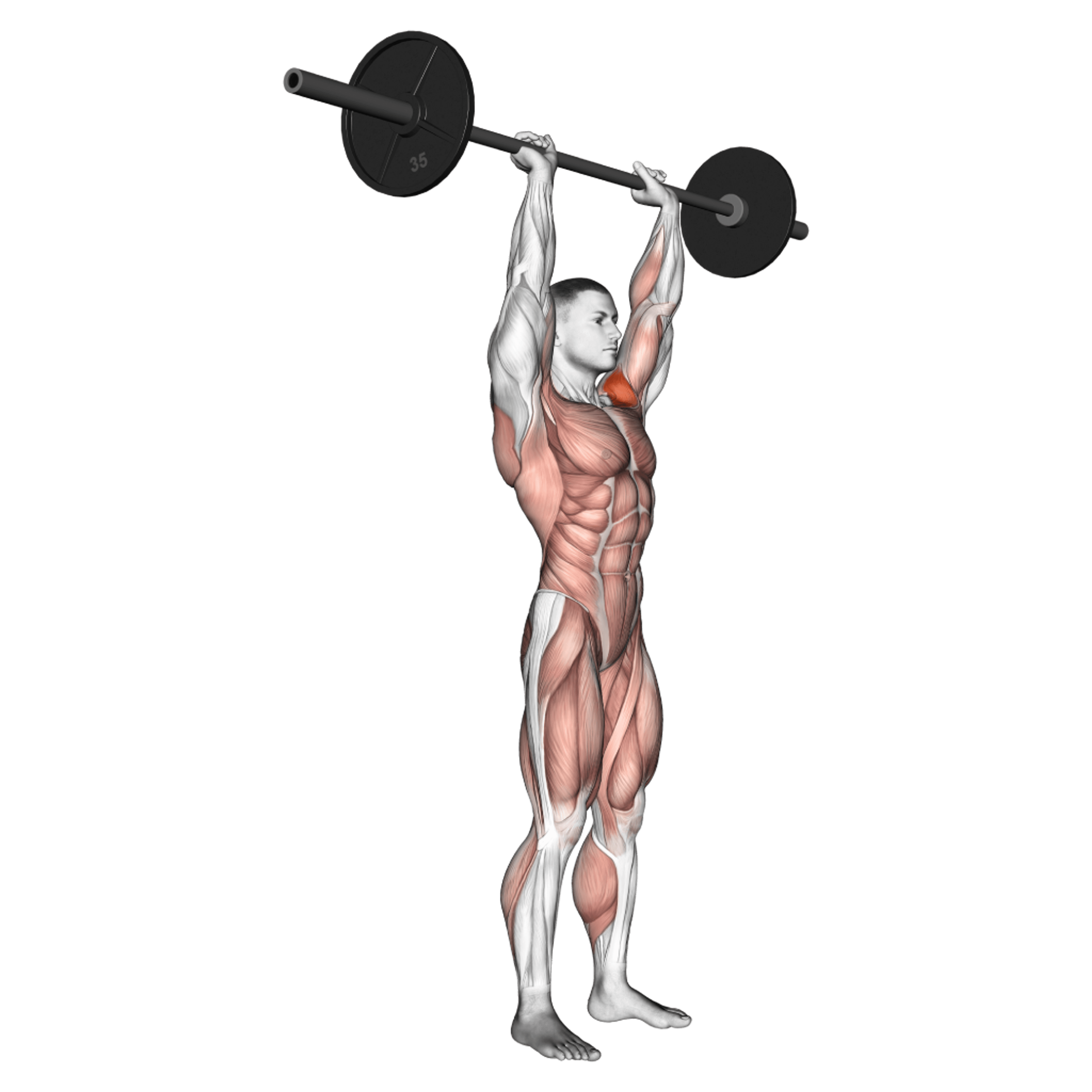Dumbbell Power Clean

Overview
- Primary Focus:
- Full body.
- Equipment:
- Dumbbell.
- Difficulty:
- Intermediate.
General Information
Dumbbell Power Clean is a compound exercise that primarily targets the upper legs and also engages the shoulders, back, and glutes. It is an intermediate-level movement that teaches explosive hip extension and a fast rack with simpler setup than a barbell.
Dumbbells let each arm find its path, lowering front-rack mobility demands. It works well for field athletes and general trainees in home or gym settings when equipment or space is limited.
Keep reps modest and velocities high to reinforce timing and barbell-adjacent patterns: close path, full extension, and an active catch. Progress loads only while maintaining clean positions.
If coordination is challenging, practice from the hang, use clean pulls, or perform single bells before moving to bilateral reps.
Muscles Worked
- Biceps Femoris
- Primary
- Erector Spinae
- Primary
- Gluteus Maximus
- Primary
- Lower Trapezius
- Primary
- Rectus Femoris
- Primary
- Semimembranosus
- Primary
- Semitendinosus
- Primary
- Vastus Lateralis
- Primary
- Vastus Medialis
- Primary
- Deltoid
- High
- Gastrocnemius (Lateral Head)
- High
- Gastrocnemius (Medial Head)
- High
- Latissimus Dorsi
- High
- Rhomboid Major
- High
- Soleus
- High
- Biceps Brachii
- Medium
- Brachialis
- Medium
- Brachioradialis
- Medium
- External Oblique
- Medium
- Rectus Abdominis
- Medium
- Flexor Carpi Radialis
- Low
- Flexor Carpi Ulnaris
- Low
- Pectoralis Major
- Low
- Serratus Anterior
- Low
- Upper Trapezius
- Low
Instructions
- Hold two dumbbells at the sides or in front. Stand tall, feet hip-width, brace, and set a neutral spine with shoulders slightly in front of the bells.
- Initiate by pushing through the floor, keeping the bells close as they rise past the knees with balance over midfoot.
- Extend hips, knees, and ankles powerfully, then pull under and rotate elbows to receive the bells on the shoulders in a power position above parallel.
- Stand tall to finish, stabilize, then lower the bells under control or reset to the floor for the next rep.
- Favor singles or small sets with resets to maintain speed and timing rather than long, fatiguing sets that degrade positions.
Build Your Personal Workout Plan
Sign up to get 5 free AI-generated workouts made for you.
Common Mistakes
Injuries
Dumbbell Power Clean is a medium risk exercise when performed with proper technique.
Common hot spots are the lower back and wrists from swinging or catching with soft elbows. Keep the path close, finish extension, and meet the bells with an active rack to reduce stress.
Scale to hang power cleans or clean pulls, and use submaximal loads until timing is automatic. Stop if pain appears and address mobility and technique before progressing intensity.
Alternative Exercises
Frequently Asked Questions
- Q: Should I touch the floor each rep?
Either from the floor or hang is acceptable. Choose the range that lets you keep a close path and consistent speed with control.
- Q: How many reps per set?
Use low reps like 1-3 to keep quality high. Reset between reps for best power output and timing practice.
- Q: What if my wrists feel strained?
Lighten the load, keep the bells close, and receive with an active rack and neutral wrists. Improve timing before increasing intensity again.
- Q: Is this a good substitute for a barbell clean?
Yes for many training goals. It builds similar hip extension and rack timing with lower equipment demands and simpler setup.
Overview
- Primary Focus:
- Full body.
- Equipment:
- Dumbbell.
- Difficulty:
- Intermediate.




